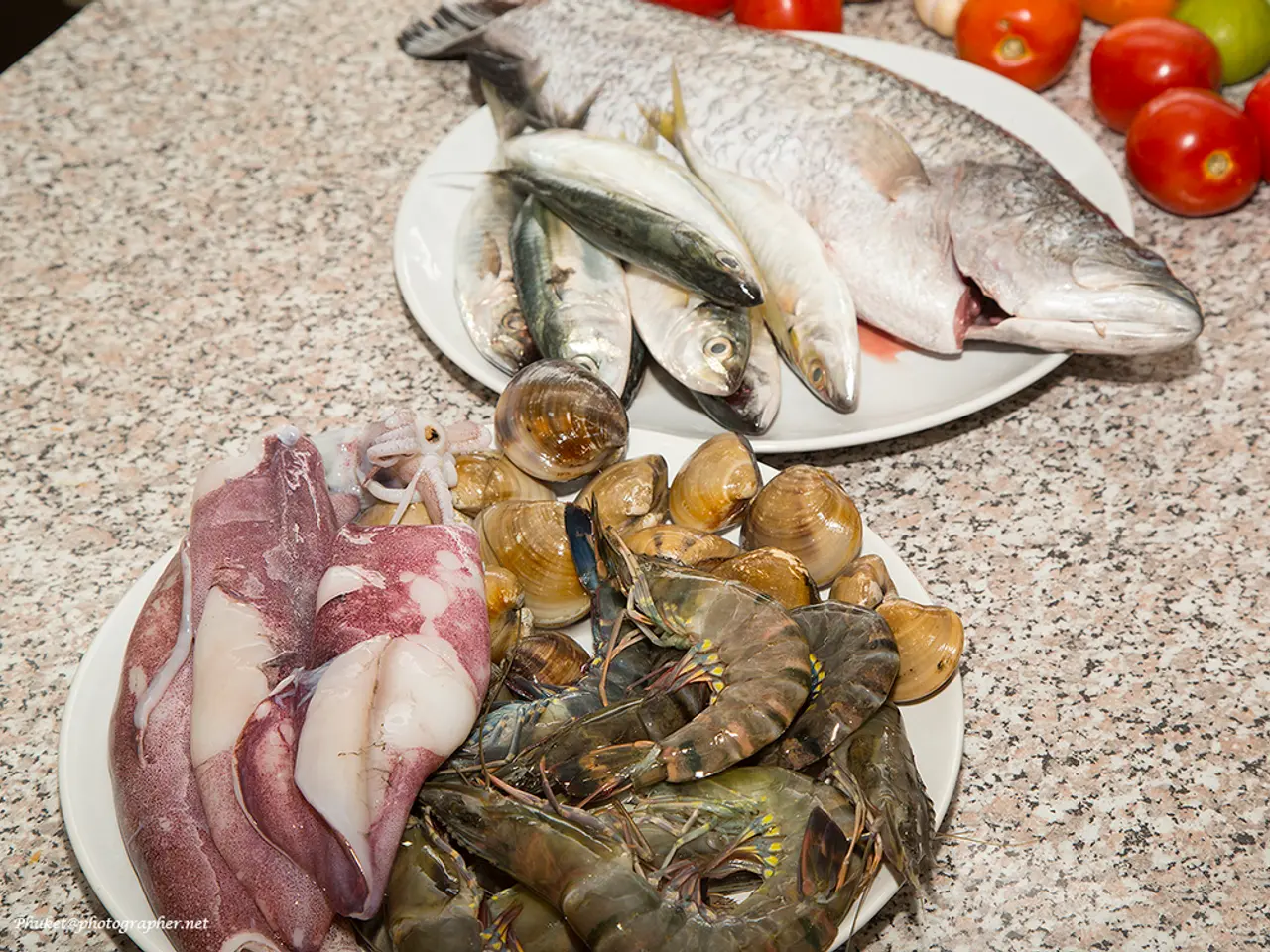Enhanced trade pact between India and the UK enables tariff-free shipping for Indian aquatic products, bolstering seafood exports and supporting coastal communities' livelihoods.
In a significant move for India's marine industry, the Comprehensive Economic and Trade Agreement (CETA) between India and the UK, signed on July 24, 2025, is expected to boost seafood exports to the UK by an estimated 70% over the coming years.
The agreement eliminates tariffs on nearly all marine product tariff lines, providing Indian exporters with zero-duty access on 99% of seafood categories that were previously subject to tariffs as high as 21.5%. Key seafood products benefiting from CETA include Vannamei shrimp, frozen squid, lobsters, frozen pomfret, and black tiger shrimp. These products represent a large share of India's exports to the UK, which totaled $104 million in 2024-25, with frozen shrimp alone accounting for $80 million.
India's seafood exports reached $7.38 billion (Rs 60,523 crore) in 2024-25, with frozen shrimp contributing $4.88 billion (66%). Despite this, India held only about 2.25% of the UK's $5.4 billion seafood import market before the agreement. The tariff eliminations under CETA enhance the cost competitiveness of Indian seafood, positioning India to capture more market share from competitors who already have UK trade advantages.
The fisheries sector supports the livelihoods of approximately 28 million Indians, primarily across coastal states. The agreement is especially significant for this sector, as it opens up key services sectors and expands export destinations from 100 to 130 countries. However, it is worth noting that products under HS Code 1601, such as sausages, remain excluded from preferential treatment under CETA.
The deal was formalized in London and was signed by India's Minister of Commerce and Industry, Piyush Goyal, and the UK Secretary of State for Business and Trade, Jonathan Reynolds. The first publication date of this article is July 27, 2025. The CETA agreement aims to shift toward duty-free trade and deeper commercial cooperation between India and the UK, marking a new era in the economic relationship between the two countries.
[1] "India-UK Comprehensive Economic and Trade Agreement (CETA)" - Government of India, Ministry of Commerce and Industry. (2025). [Online]. Available: https://commerce.gov.in/india-uk-comprehensive-economic-and-trade-agreement-ceta
[2] "India-UK CETA: What it means for Indian seafood exports" - Seafood Exporters Association of India. (2025). [Online]. Available: https://seafoodexportsofindia.org/india-uk-ceta-what-it-means-for-indian-seafood-exports/
[3] "India's Seafood Exports to the UK to Surge by 70% Under CETA" - The Economic Times. (2025). [Online]. Available: https://economictimes.indiatimes.com/news/economy/foreign-trade/indias-seafood-exports-to-the-uk-to-surge-by-70-under-ceta/articleshow/91777730.cms
[4] "The Impact of CETA on India's Seafood Exports" - The Hindu BusinessLine. (2025). [Online]. Available: https://www.thehindubusinessline.com/economy/the-impact-of-ceta-on-indias-seafood-exports/article36326371.ece
- The Comprehensive Economic and Trade Agreement (CETA) between India and the UK, signed on July 24, 2025, is expected to spur a 70% increase in India's sports (seafood) exports to the UK in the coming years.
- The CETA agreement aims to promote zero-duty access for various Indian seafood categories, including Vannamei shrimp, frozen squid, lobsters, frozen pomfret, and black tiger shrimp, making India's seafood (sports) more cost-competitive in the UK market.





